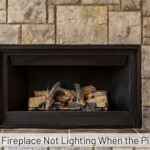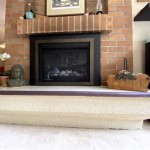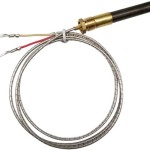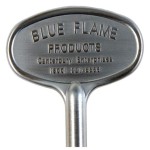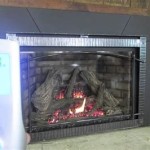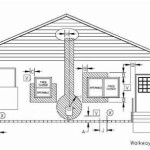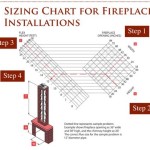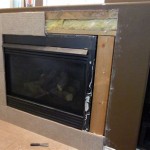Insulating a Fireplace: Enhancing Efficiency and Comfort
Fireplaces, with their captivating allure and warmth-generating capabilities, remain a cherished feature in many homes. However, traditional fireplaces often suffer from inefficiencies that can detract from their overall appeal. Heat loss through the chimney and inadequate insulation can lead to a significant reduction in heating efficiency, resulting in higher energy bills and drafty rooms. Addressing these shortcomings through proper insulation can transform a fireplace into a more efficient and enjoyable focal point.
Understanding Heat Loss in Fireplaces
The primary culprit behind heat loss in fireplaces is the chimney. Designed to channel smoke and gases upwards, chimneys naturally act as a conduit for warm air to escape. This phenomenon, exacerbated by drafts and poorly insulated chimneys, can lead to substantial heat loss, especially during colder months. Furthermore, uninsulated fireplaces themselves can contribute to heat loss, allowing thermal energy to dissipate into surrounding walls and floors.
Benefits of Fireplace Insulation
Insulating a fireplace offers a multifaceted approach to enhancing its performance and comfort. By effectively reducing heat loss through the chimney and fireplace structure, insulation contributes to several notable benefits:
Increased Heating Efficiency:
Reducing drafts and heat loss through the chimney and fireplace structure directly translates to improved heating efficiency. Less heat is wasted, allowing the fireplace to generate more warmth within the room. This improved efficiency can result in a more comfortable living environment and lower heating costs.
Reduced Energy Consumption:
Enhanced efficiency leads to a decrease in energy consumption. By reducing the need to rely on other heating sources to compensate for heat loss, insulating a fireplace can help lower energy bills and reduce reliance on fossil fuels, promoting environmental sustainability.
Enhanced Comfort:
Insulating a fireplace creates a more comfortable living environment by reducing drafts and ensuring that the generated heat stays within the intended space. It contributes to a warmer and more inviting atmosphere, allowing occupants to enjoy the warmth of the fireplace without feeling a chill from surrounding areas.
Increased Safety:
Proper insulation can also enhance safety by preventing the buildup of creosote, a highly flammable residue that can accumulate in chimneys. A well-insulated fireplace offers a greater degree of protection against chimney fires, contributing to a safer home environment.
Types of Fireplace Insulation
Several effective insulation options are available for fireplaces, each offering specific benefits and considerations:
Chimney Insulation:
Chimney insulation typically involves using specialized materials to line the interior of the chimney. Common options include fire-resistant fiberglass insulation, ceramic blanket insulation, or even a combination of both. These materials significantly reduce heat loss through the chimney while also inhibiting the formation of creosote buildup.
Firebox Insulation:
Insulating the firebox, the area where the fire burns, can further enhance efficiency. Firebox insulation options include high-temperature ceramic fibers, refractory bricks, or specialized insulation blankets. These materials withstand the intense heat generated by the fire, effectively insulating the firebox and preventing heat loss into surrounding structures.
Wall and Floor Insulation:
For fireplaces built into walls or floors, insulation around the fireplace structure itself is crucial. Common insulation options include rigid foam insulation, spray foam insulation, or fiberglass batts. These materials create an effective thermal barrier, preventing heat loss from the fireplace into surrounding areas and contributing to a more comfortable room temperature.
Installation Considerations
While insulating a fireplace can offer substantial benefits, it's crucial to consider several factors before embarking on the project:
Fireplace Type:
The type of fireplace, whether traditional masonry, prefabricated, or a modern zero-clearance model, will influence the installation process and materials used. Consulting with a professional can ensure the appropriate insulation methods are selected and implemented.
Existing Insulation:
Assessing the current state of insulation within the chimney and fireplace structure is vital. Existing insulation may be adequate, require replacement, or necessitate supplementation with additional materials. A professional inspection can determine the optimal course of action.
Local Building Codes:
Understanding local building codes is crucial to ensure that any insulation modifications comply with regulations. Obtaining permits and adhering to safety guidelines can prevent potential issues and ensure a successful insulation project.
Professional Installation:
While some DIY projects may be feasible, installing fireplace insulation often requires specialized skills and knowledge. Consulting with a licensed and experienced contractor can ensure that the insulation is installed correctly and efficiently, maximizing benefits while ensuring safety.

Electric Fireplace Insulation An Ultimate Guide Inserts Guy

How To Insulate A Fireplace And Chimney Improve Efficiency

Building A Fireplace Heat Accumulation Insulation Vitcas

Insulation Near A Fireplace Misterfix It Com

Walls Behind Fireplaces Building America Solution Center
Finally Got Around To Insulating My Fireplace Hearth Com Forums Home

How To Insulate A Fireplace
How Do I Insulate Below A Fireplace Anandtech Forums Technology Hardware And Deals

How To Insulate An Electric Fireplace Process Tools Insulation Types Inserts Guy

How To Insulate A Fireplace Storables
Related Posts

